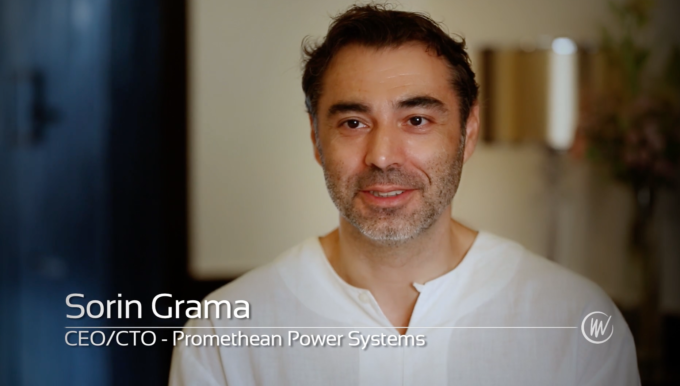Failing is an uncomfortable experience and as a human race, we’re trained to avoid it. Our inherent desire to succeed typically drives our efforts and when we fail–in our professional or personal lives–it’s easy to fall into a rapid downward spiral of self-doubt. We’ve all heard the popular quotes from Thomas Edison saying, “I have not failed, I’ve just found 10,000 ways that won’t work,” or Michael Jordan sharing he’s “failed over and over and over again in his life and that’s why he succeeds.” These inspirational quotes highlight why failure is an important step in achieving success but sometimes it’s encouraging to hear from fellow entrepreneurs and innovators–the people right here in your own backyard–to better understand how they embraced failure and used that experience to improve.
That’s why we recently sat down with Sorin Grama to learn from him and share his insights with the Greentown Labs community. Sorin is a man of many hats: he is co-founder and CTO of Promethean Power Systems which happens to be a founding member company of Greentown Labs, and most recently he joined MIT’s Legatum Center for Development and Entrepreneurship as Entrepreneur in Residence!
Earlier this year Sorin co-authored an article in the Technology and Innovation Journal of the National Academy of Inventors entitled, “The Critical Role of Failure in the Innovation Process: How Failures Help Inventors Succeed.” In the article he and his co-author, Yolanda Leslie Comedy, review the process of invention and share brief case studies on how failures played an instrumental role in the work of many innovators.
In our conversation we discussed entrepreneurship, conviction and promoting invention in our daily lives. Here are highlights from our chat:
Greentown: Why is it okay to fail? How have you experienced failure?
Sorin: Failure is something that happens, especially in the invention process when you don’t know where you’re going. It’s almost unavoidable and you have to, you must, use the experience to generate new ideas. Otherwise, it can be super stressful and if you fail too many times people become critical–like investors, employees, customers, etc.–so you always have to convert that failure into a lesson learned and move forward with that knowledge.
When we [Promethean] first failed at solar, we inadvertently created an energy storage device which turned out to be the real answer to our problem. What an opportunity! Our failure created an entirely new path for us to pursue and frankly, you’re never going to go from place A to B in a straight line, the turns on the road make often your journey more interesting and fruitful.
Greentown: Do you have any advice for fellow entrepreneurs and/or innovators on how to manage failure when they encounter it? How can they overcome it?
Sorin: Be introspective , don’t let failure get you down too much, use it as a platform for new ideas and a source of creativity. Sometimes you need to fail to discover your next opportunity. In my mind, failure equals creativity.
For the Promethean team, we saw the impact our technology could make on an entire industry which helped keep us going despite various failures. Seeing the farmers and hearing positive customer feedback kept pushing us. Not only is it a combination of motivation from our community–customers, mentors, advisors–but it’s also a personal, inner motivation and grittiness. Entrepreneurs and inventors need to have grit to succeed.
Greentown: Do you believe innovation driven by failure is a concept that can be applied across industries?
Sorin: Sure, even if not mission-driven, there’s some sort of conviction that an entrepreneur wants to change the status quo so no matter what that change is and no matter the industry, the inventor can apply his or her failures to continue evolving their solution or product. The solution or product doesn’t have to be world changing either but you need to have deep-seated conviction that the status quo is wrong and you have a better way to do it. Conviction is a trait of many entrepreneurs and investors looks for it. They try to shake their foundation to see how convinced they are of their original idea and uncover that primal drive that push the entrepreneurs to achieve their goal.
My advice to all entrepreneurs and inventors is to work on something you’re passionate about. Invention is a marathon, not a sprint, and you’re going to be in it for a while. The journey must be enjoyable and even though it’s hard to think about the end result, have an end goal, something you’re passionate about that you can remind yourself of during the tough times.
You can connect with Sorin on Twitter at @sorino99.



